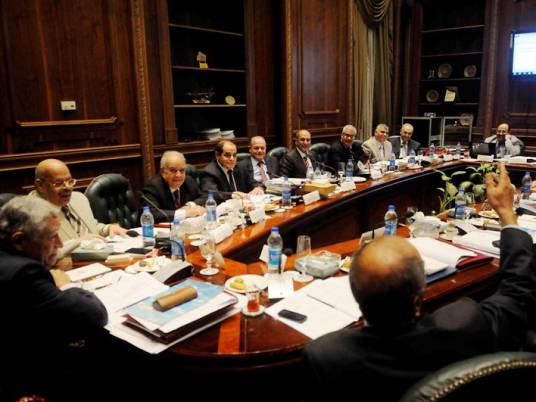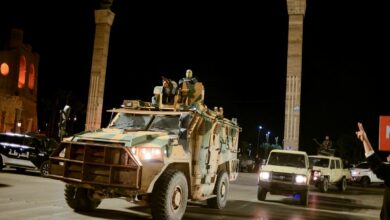
An article allowing civilians to be tried before military courts has been approved in Egypt's new constitution.
Out of the 50 members of the committee mandated to draft the constitution by the interim government, 30 members voted in favor of the article, seven against and 11 did not show up to the vote.
The article was amended and presented by the panel's military representative.
Some Egyptian human rights organizations have criticized the article saying that it would bring back a "police state."
The panel spokesperson Mohamed Salmawy, however, said that the amended article is in no way comparable to the old article in the 2011 constitution, which he described as "vague."
"This article specifies clearly the cases when civilians can be refered to military courts," Salmawy said.
The text of the article refers to direct attacks on military premises, camps, properties and factories; attacks on military zones and border areas, and attacks on military vehicles or personnel while they are carrying out their duties. Crimes related to military documents, secrets or funds are also included in the article.
Sinai representative on the panel, Massad Abu Fagr, withdrew from the session in protest against the article. Ahmed Maher, April 6 Youth Movement leader, also rejected the article saying that the movement would campaign against the constitution if this article remains.
On his Facebook account, Maher said: "No to a constitution that allows military trials of civilians. Have we forgotten the 12,000 civilians that had military trials [during military rule after the January 2011 uprising], including children who are still in jail?"
Tamarod campaign co-founder Mohamed Abdel Aziz, also a member on the panel, supported the article.
"After long talks, we balanced the revolution's demand for an end to military trials of civilians with the people's will to defeat terrorism targeting the armed forces…In that context the crimes [that can result in military trials have been limited] to avoid vagueness," he said in a Facebook statement.
He added that this article is important for the "critical time" Egypt is going through, adding that when things settle down, "a two- thirds majority in parliament [in a democracy] can amend the article."
Fellow Tamarod co-founder Mahmoud Badr abstained from the vote and said he would take to Facebook later to explain the reasons why.




